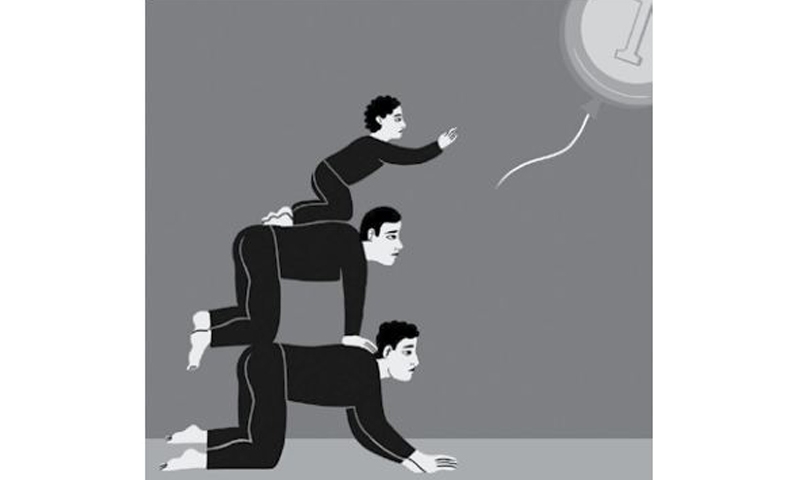Still haunted by grocery shopping in the 1980s
At age 10 in 1980s Brazil, my job was to run around the aisles of the supermarket trying to beat adults, who walked around raising prices throughout the day with comically large label guns. Since I was good at math, my mother would hand me our monthly grocery budget, and I would run through the supermarket filling our shopping cart — not having to stop to input values on a calculator saved us precious time against the labelers.
The cycle was repeated on the fifth of every month, when most Brazilians with a steady job received their monthly paycheck. The most privileged public employees were paid twice a month, and we envied their ability to shop on a day when supermarkets were not bursting with anxious families.
No wonder I became an economist, as I had to select enough food to last us a month on a tight budget. We were three brothers fighting for the better spoils — the 2-liter ice cream, the one soda bottle — that we knew would vanish soon after we got home. As Venezuela plunges into hyperinflation, we are surrounded by images of huge piles of cash being used to buy simple groceries.
The recent plan of the government to cut five zeros of the currency was met with mockery or befuddlement. Hyperinflation seemed an exotic disease that had mostly disappeared, but it seems that governments at times go out of their way to make the lives of their people worse. There are lots of people speculating about the long-term emotional impact that political repression and institutional breakdown will have on Venezuelans. Amid all this, it’s easy to overlook the impact of something more abstract like hyperinflation. But the legacy of hyperinflation is insidious and pervasive, and it too will leave scars.
The hyperinflation in Brazil in the 1980s and 1990s was fundamentally different from what Venezuela is going through today. In Brazil, life was bad, right until it wasn’t. Hyperinflation (like extreme income inequality, which unfortunately is still a problem) was the result of gross economic mismanagement but was not coupled with tyrannical oppression.
Still, Brazil’s experience with hyperinflation has lessons for today. We talk about physical and emotional abuse and the toll that it takes on mental health. We should add economic trauma. Poverty, hyperinflation andincome inequality all lead to less than healthy behavior later on. Research has found that children living in poverty are at increased risk of difficulties with self-regulation and executive function, such as inattention, impulsivity, defiance and poor peer relationships. It takes generations until society fully heals from periods of deep instability.
A study in the early 2010s showed that Germans were more worried about inflation than about developing a life-threatening disease such as cancer; hyperinflation in the country ended almost 100 years ago. I am a finance scholar and still struggle with planning for retirement. The point is people in countries that have experienced bouts of hyperinflation take a long time to learn to deal properly with money.
Hyperinflation commonly leads to two shortsighted types of behavior: short-termism and ultra conservativeness. When prices are rising more than 10 per cent every month, either you spend the money in your pocket or you lose it. While today I am happy to find a crumpled bank note in a forgotten pair of trousers, I would have cursed my stupidity for failing to spend it.
I still spend most of what I earn immediately. My brothers went in the opposite direction. They started saving immediately upon getting their first paycheck, much more than they should; they were traumatized from the uncertainty brought by volatile income and prices, and from having to move constantly as rent prices fluctuated wildly.
It was only after I started writing about it that I realized that hyperinflation was also a major contributor to my unhealthy eating habits. We were never food insecure in the strict sense. At our worst, we were lower-middle class, so there was never any lack of food.
But the good stuff? I grew up knowing that it would arrive infrequently. So when I was lucky enough to get high-quality, expensive food, I gorged on it. And I still do. Today, given my economic status, I may find that I’m gorging on food in a fancy restaurant, but also on simpler pleasures like salmon and Camembert. To this day I eat all salmon in front of me. People who are not financially literate have been shown to overestimate inflation and are less likely to plan adequately for retirement. Brazilians do better than most in financial literacy, but there is still a long way to go. The tragedy in Venezuela is costing thousands of lives and the toll is rising. In the end, the Venezuelan humanitarian crisis will last much longer than President Nicolas Maduro’s regime and its hyperinflation.
Hyperinflation can be reined in, as the experiences of Israel and Latin America in the 1980s and 1990s show. The boogeyman of rising prices will eventually be shooed away, but having to dance with the beast will leave scars on the financial behavior of Venezuelans for generations. Even those who should know better.
Related Posts

